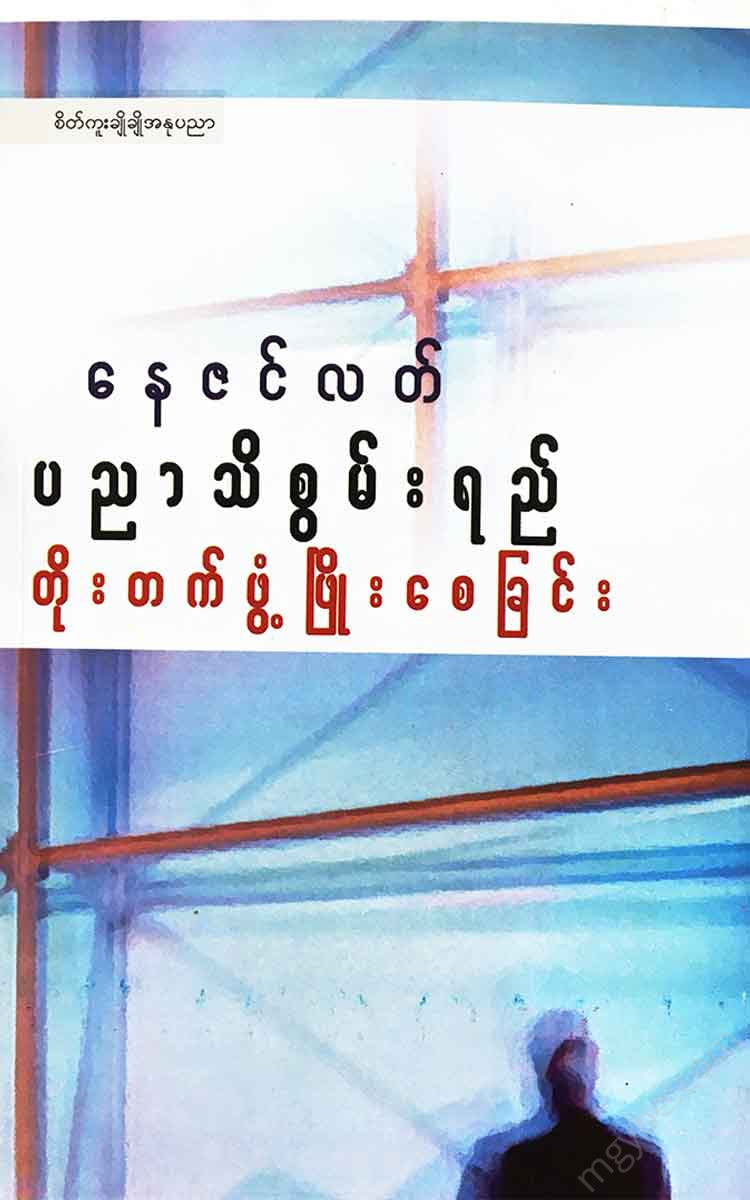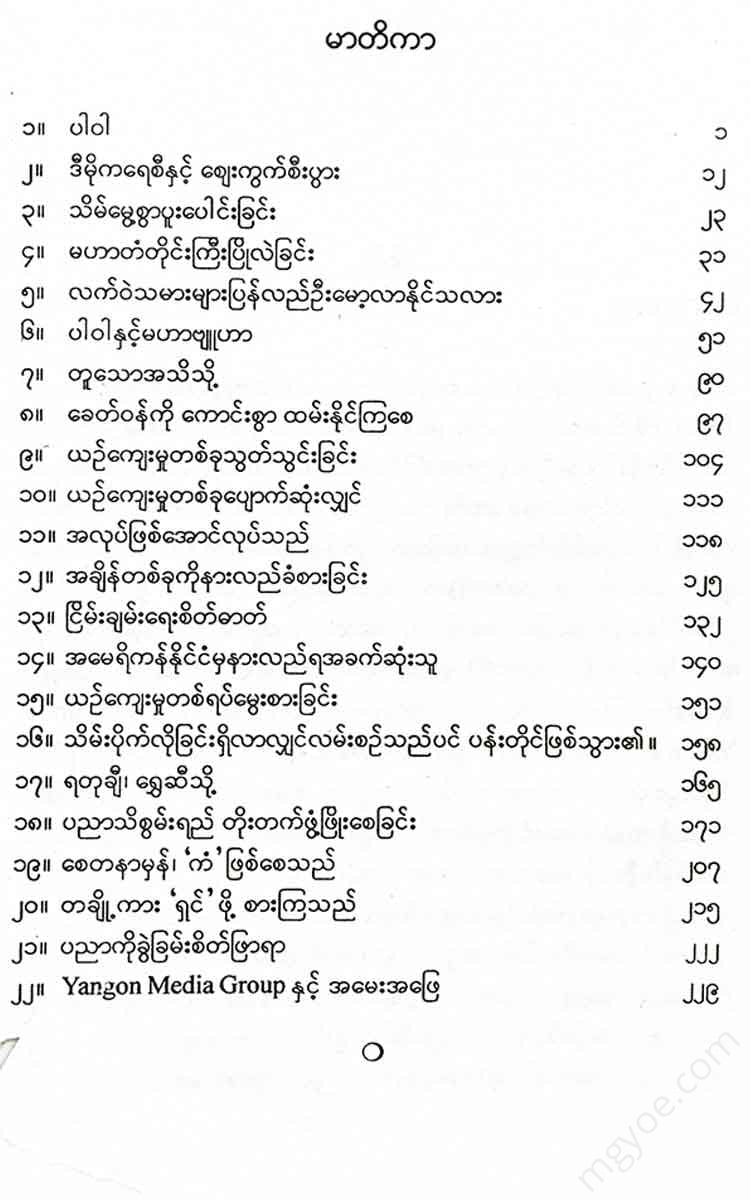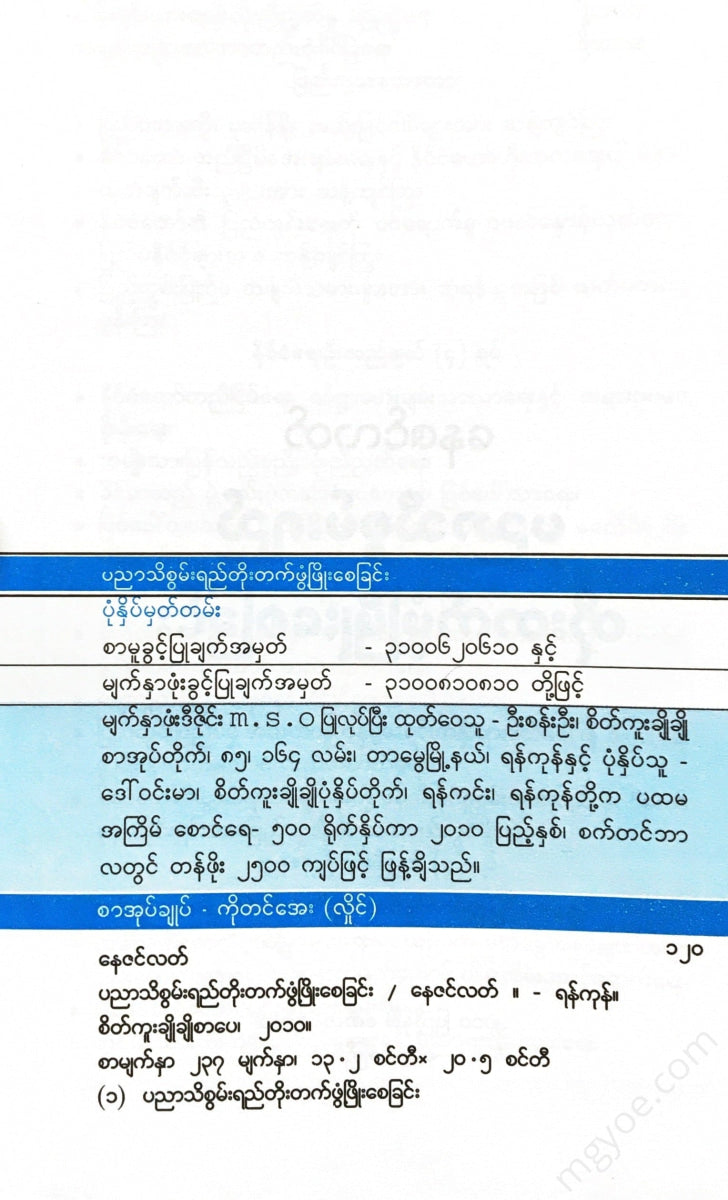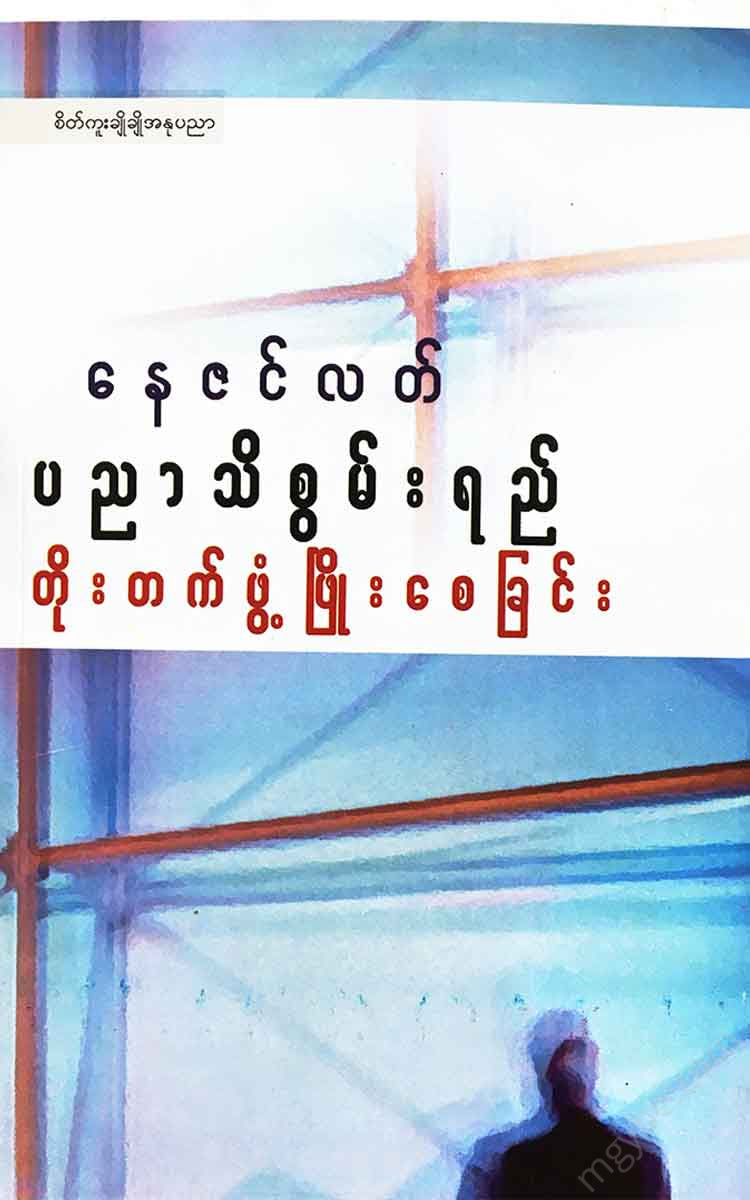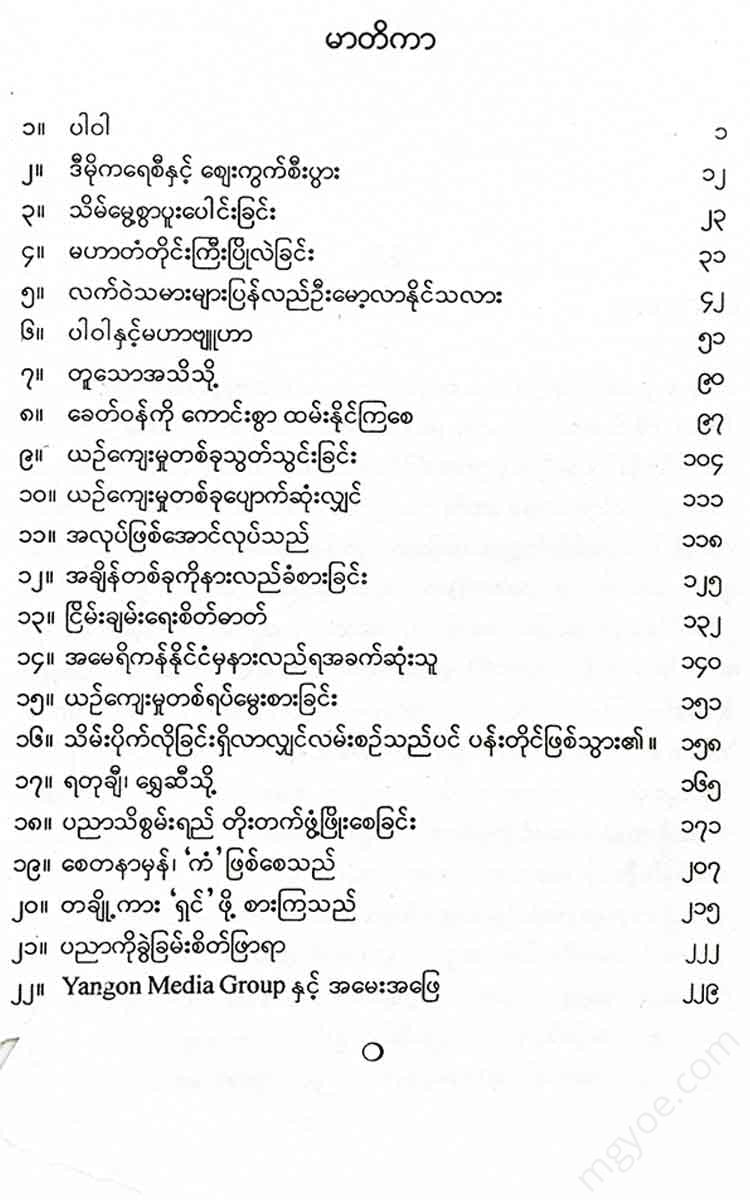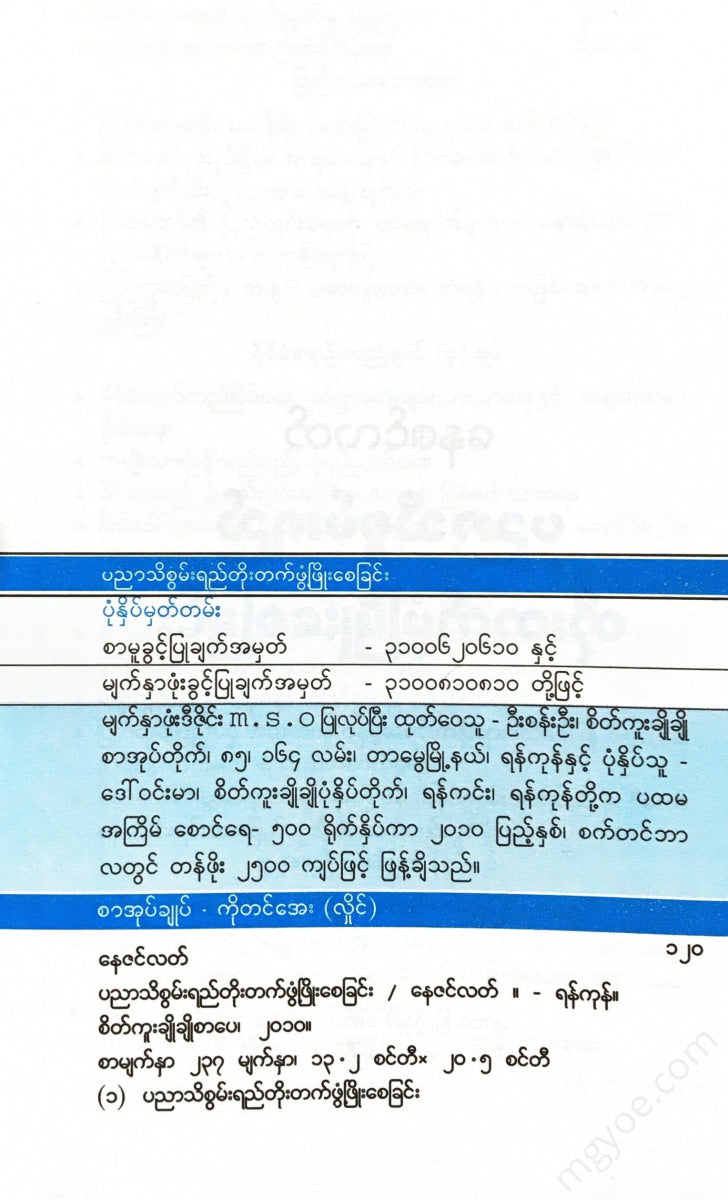စိတ်ကူးချိုချိုစာပေ
Nay Zin Latt - Developing knowledge and skills
Nay Zin Latt - Developing knowledge and skills
Couldn't load pickup availability
When asked to give a lecture in a big city, Ba Maung gave the title Power and Strategy. He nodded his head in agreement to change it to Economic Power and Strategy. In fact, power is a term that has been used since ancient times. Nothing strange. Everyone, every creature has power, it is just the level and difference of power. Power has been defined in English in more than (20) ways. The title Ba Maung wanted to give was accypacogoo soysuosdamsos (Power – The ability to control people or things). In the Burmese dictionary, it is found as (the ability to act, influence, authority, control). Power is used in many ways. Ba Maung wants to say that power is the ability of an individual, the ability of a leader leading an organization, and from there, he wants to say it broadly at the national, regional, continental, and world leaders, Then there are economic power, social power, political power, etc. I would also like to add who among the world's leaders possesses what kind of power, what strategies did they use, and how did the global environment change as a result?
The lecture is only (3) hours in total, so if you subtract half an hour for feedback, you will only be able to talk about it in two and a half hours. As a businessman and an expert, you will have to talk about it from all angles, so it is a topic that you can talk about quite a bit. Since the time limit of two and a half hours is limited for Ba Maung, I think you will only be able to talk about it in a rough way.
Ba Maung has noticed that power is viewed from a different perspective in each field. This is how it is viewed from a management perspective.
"Power:......... is the ability to influence the behavior
"of others"
“Power: ............... is the capacity to restructure actual
"situation"
Social workers...
"Power is not power over others"
(not forcing to do)
I mean, it's not forced.
"Power is the ability to get things done"
(inspiring to do)
I'm talking about the ability to persuade and organize to get things done. You can see the difference in perspective between the two fields.
Those who have a strong political and military perspective...
They see it as “an action over actions.” Some political liberals see it as a more moderate view. There are many types of power.
- Personal Power
- Positional Power
- Constitutional Power
- Social Power
- Economic Power
- Military Power
- National Power
- Technical Power
There are dozens of powers. Mother Teresa was a Social Power. Albert Einstein was known for his Intuitive Power, and Sir Winston Churchill became a political powerhouse. Mahatma Gandhi of India was considered Charismatic because he was so popular with people. Management guru Peter Drucker is classified as (Management and Visionary).
On the economic front, there is no universally agreed-upon explanation for power. But Ba Maung noticed a good point.
"In general, those with more power also have more freedom than others and may be able to exploit others in society."
The more powerful an economy is, the more freedom it has and the more it dominates others. In economics, there are undeniable powers: Purchasing Power, Monopoly Power, Bargaining Power, and Managerial Power.
If we interpret power in a short, concise way, not in a big book, based on feelings, senses, and experiences,
- Social Power "Inspiring to do" -
- Managerial Power “To get things done”
- Political Power can be said to be “Power over the powers.”
If we were to visualize political power a little more clearly...
"Political Power (imperium - Latin) is a type of power held by a group in a society which allows administration of some or all of public resources, including labor and wealth."
Political power can be seen as a slightly broader concept. Political power is the power to manage the resources, labor, and wealth of the people. This is just the level of political power within a country. Political power, when viewed from the perspective of international relations, is much broader. It includes pressure, sanctions, and coercion.
In a country, governments often implement a democratic separation of powers. The term Separation of Power is often used by the Ba Maungs.
Separation of Power
- Legislative Power, legislation
- Executive Power
- Judicial Power,
These three powers are separated and careful attention is usually paid to ensuring that one power does not influence the other. In some countries, the Executive Power tends to influence the other two powers.
In this context, there are two systems that most countries have followed in the past. Communism and socialism are one and the same. The two systems that most democratic countries have followed are
- Presidential System (Presidential rule)
- Parliamentary System (Parliamentary rule)
In a presidential system, the president is the head of government and holds full executive power. In a parliamentary system, the head of state is only a figurehead, and the prime minister is the one who exercises the most executive power. In Russia, the president and prime minister are combined, and the prime minister currently has more influence than the president. In China, the president and prime minister are combined, and the president has more influence.
Around the 1980s, the power of nations was divided into two categories: Hard Power and Soft Power. As relations between nations became more complex and nuanced, Smart Power became popular as countries sought to dominate and control one another.
Hard Power
Hard Power refers to coercive tactics, the threat or use of armed forces, economic pressure or sanctions, assassination etc...
In the world of politics, there is a term called “Carrot & Stick.” It can be translated as “carrot and stick.” Hard Power can also be called “stick power.” It can be used for military force, economic pressure, sanctions, and even assassinations. Hard Power is defined as any action that can be taken.
Soft Power
Means of exercising soft power includes diplomacy, dissemination of information, analysis, propaganda, and cultural programming to achieve political ends.
Soft power includes activities such as diplomacy, informational attacks, propaganda, and the systematic introduction of a culture. It also includes compromise and negotiation.
